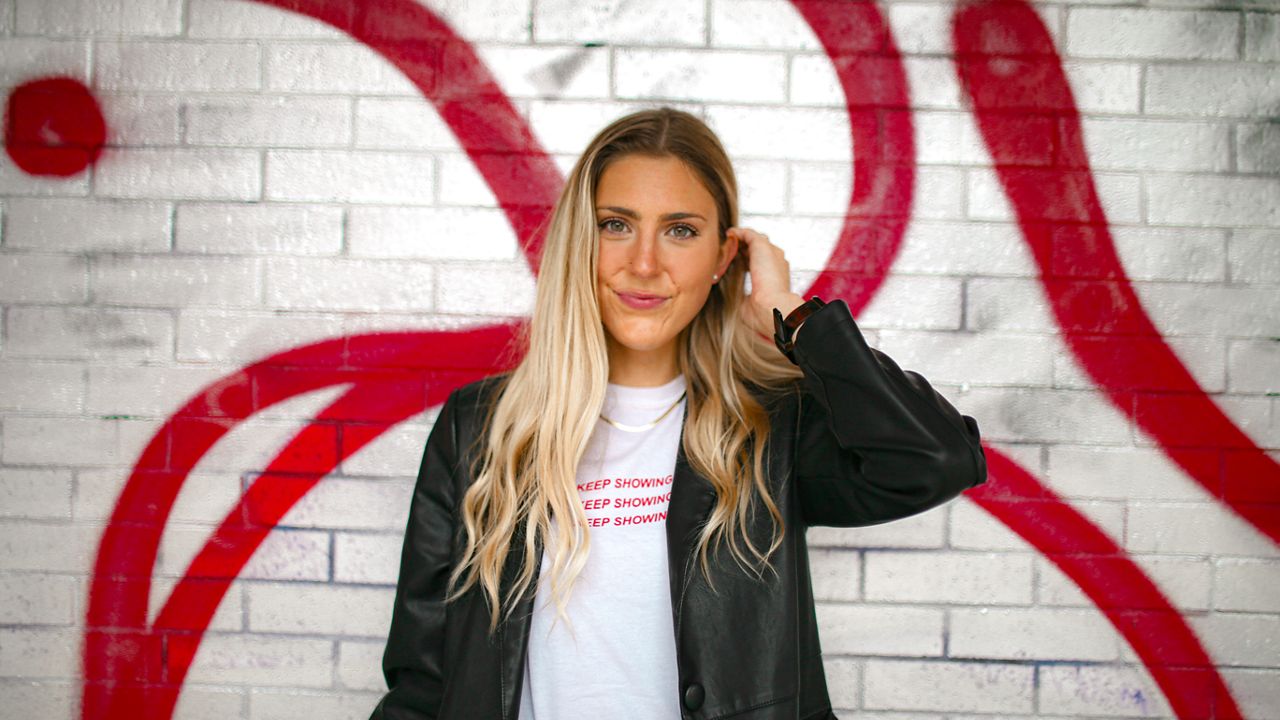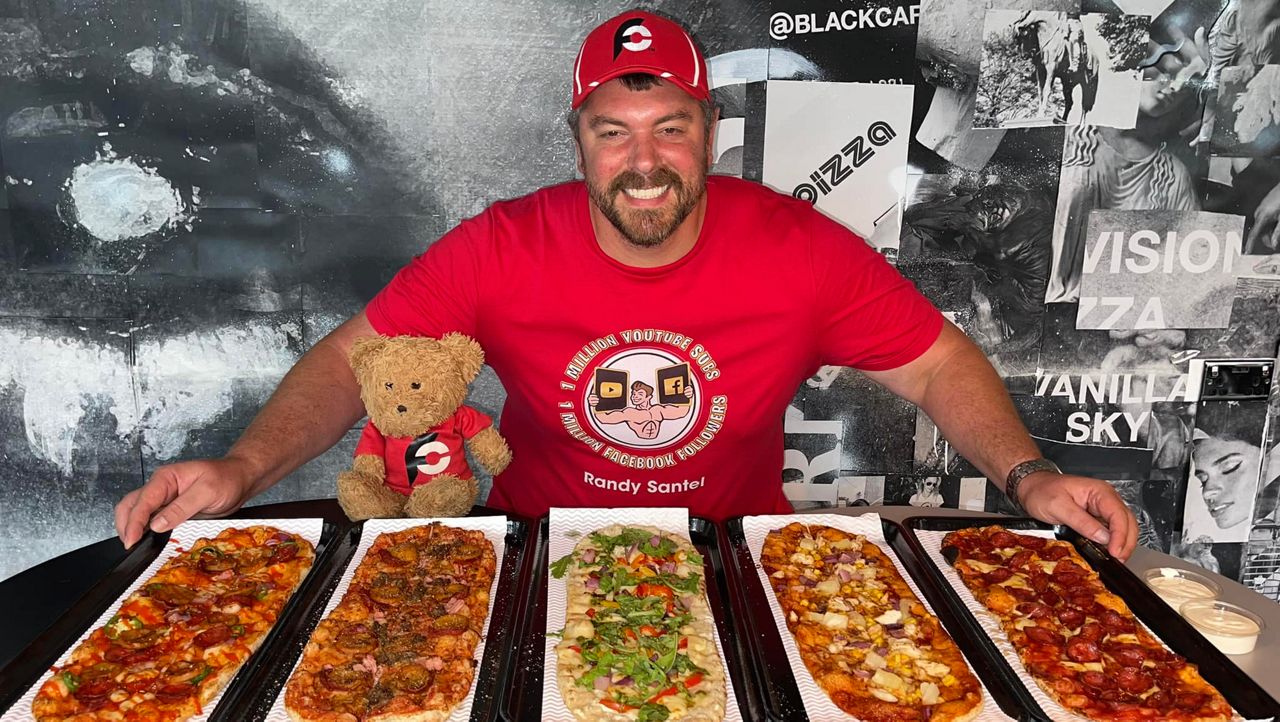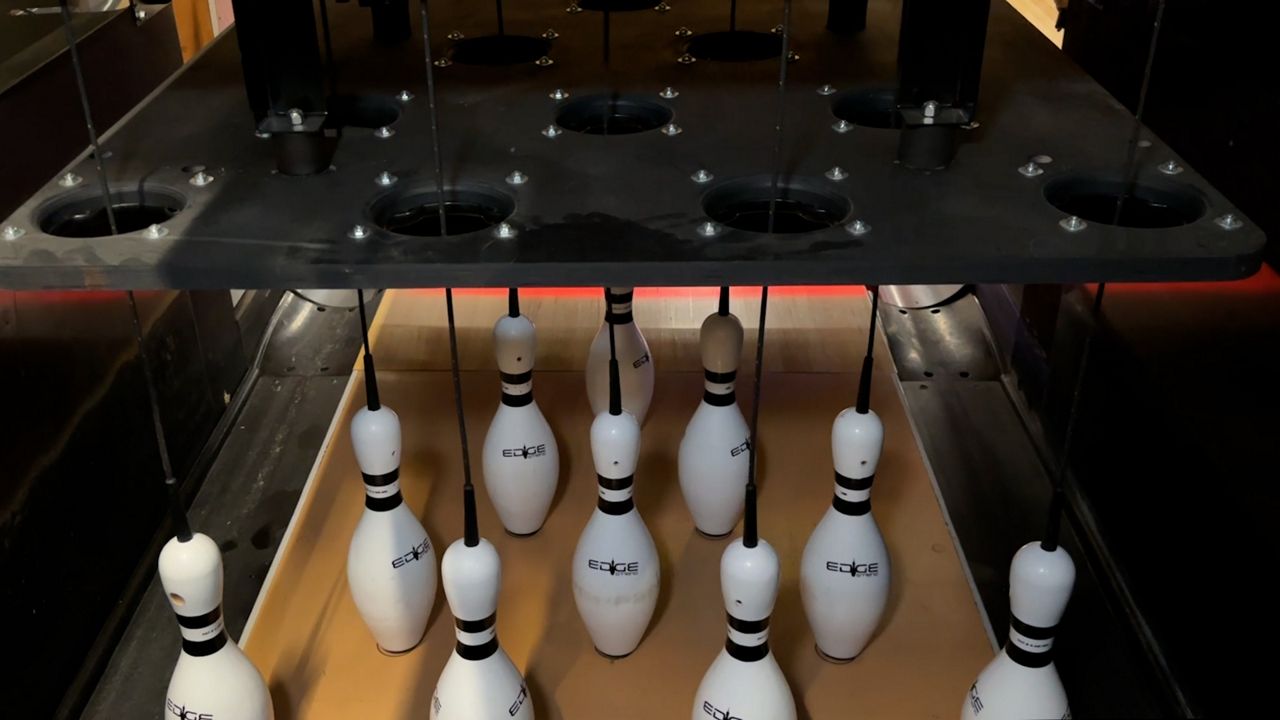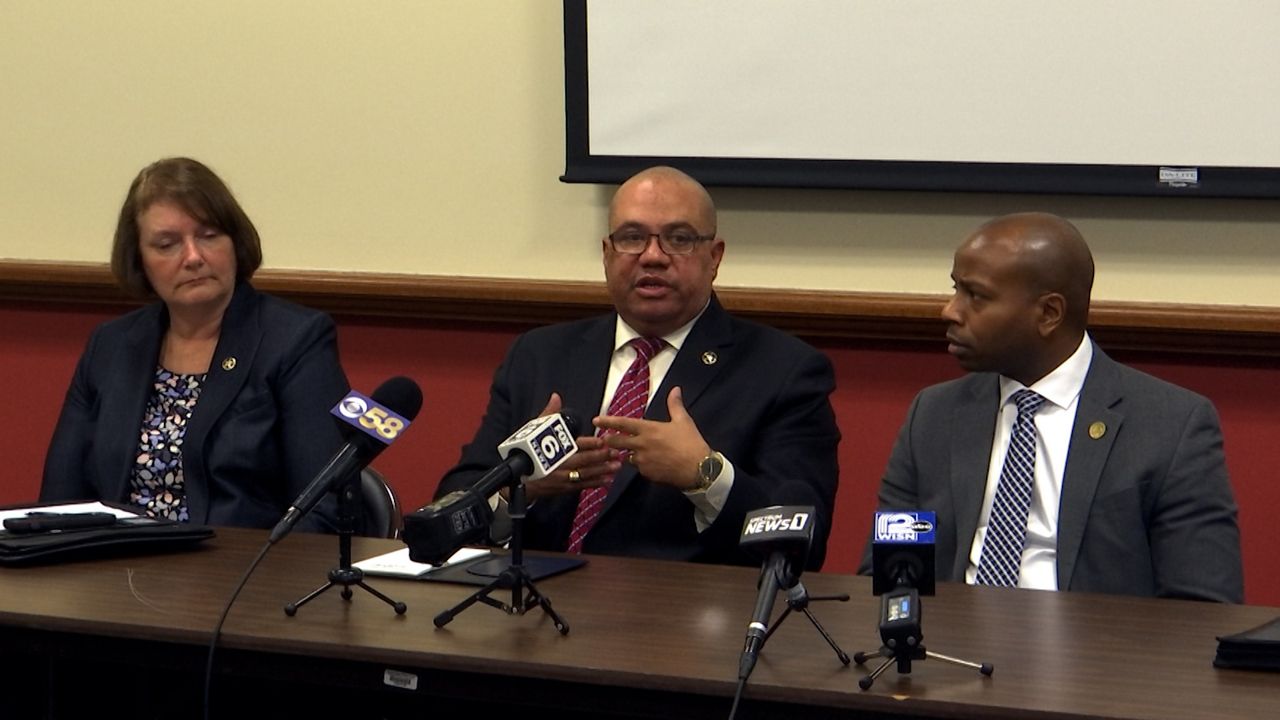Editor’s notes: Words in italics are excerpts from an article written by Jenny Fischer on April 10, 2017 and appeared in the Marquette Wire, the student media organization at Marquette University.
This article mentions suicide. If you or someone you know is having suicidal thoughts, you can contact the National Suicide Prevention Lifeline for free, confidential support at 1-800-273-8255, or text HOPELINE to 741741.
The receptionist in Cliff Fischer’s office was blindsided by one of life’s harsh truths. She was given a diagnosis of breast cancer, and Cliff knew it was nearly impossible to find the words that would provide comfort.
What You Need To Know
- After her mom's suicide, Jenny Fischer found her purpose in life with her "Keep Showing Up" campaign for suicide prevention
- If you would like to purchase a “Keep Showing Up” T-shirt, or make a donation to the American Foundation for Suicide Prevention, tap here
- For more information on the American Foundation for Suicide Prevention, visit their website
- To read Jenny Fischer’s story, “A Strong Line of Fighters,” visit the Marquette Wire here
But he knew where the right words were. He went and got a T-shirt designed by his daughter, Jenny. And he brought it to her.
“Keep showing up,” it said.
“She thought that was just incredible,’’ said Cliff, formerly of Hartland, Wis., now living in Seattle. “The power of that message.”
There was another employee whose spouse lost their job. And with COVID-19 wreaking havoc, it would be difficult to find employment again quickly. So Cliff gave that employee a T-shirt as well.
“So the ripple effect that Jenny talks about; this slow upwelling of ‘Keep Showing Up,’ it’s such a powerful message that people need to be talking about it all the time.”“They just thought it was wonderful, and they ended up buying a T-shirt, too,’’ he said. “So the ripple effect that Jenny talks about; this slow upwelling of ‘Keep Showing Up,’ it’s such a powerful message that people need to be talking about it all the time.”
Jenny Fischer keeps showing up, every day; for her family, her friends, herself, and complete strangers who, like the employees in her dad’s office, need those three powerful words in their lives.
And she keeps showing up to honor her mom, who a little more than 10 years ago, beset by mental illness, could no longer do that. Jill Fischer, at age 45, took her own life. And it is Jenny’s hope that by sharing this message with as many people as she can, someone, somewhere in this world, will not have to suffer like she has.
Words in italics below are an excerpt from her story in the "Marquette Wire" where she explained her personal experience dealing with a loved one's suicide.
Suicide is ugly and real, heartbreaking and world crushing, and a tragedy in all aspects. Not everything worth talking about is easy or enjoyable.
****
The day began like any other for 13-year-old Jenny. Loving up the family dog, Mollie, then exchanging “I love you” with her mom as she bounded out the door for school.
When she came home from school, it was a day unlike any other.
After school I walked into the house to find droplets of blood in the kitchen. I called for my mom a few times — no answer. Her car was in the garage. I spotted her phone on the counter — 12 missed calls.
I wandered to my parents’ room, still searching. I could see the light in the bathroom was on from underneath the crack of the door.
I jiggled the doorknob — locked.
“Mom?”
Mind racing. I walked outside so I could see in the bathroom window. And there she was.
I screamed.
The Fischers were a family of five and deeply active in the Hartland community. On the day of the funeral, more than 2,500 people showed up. And Jenny was determined to speak.
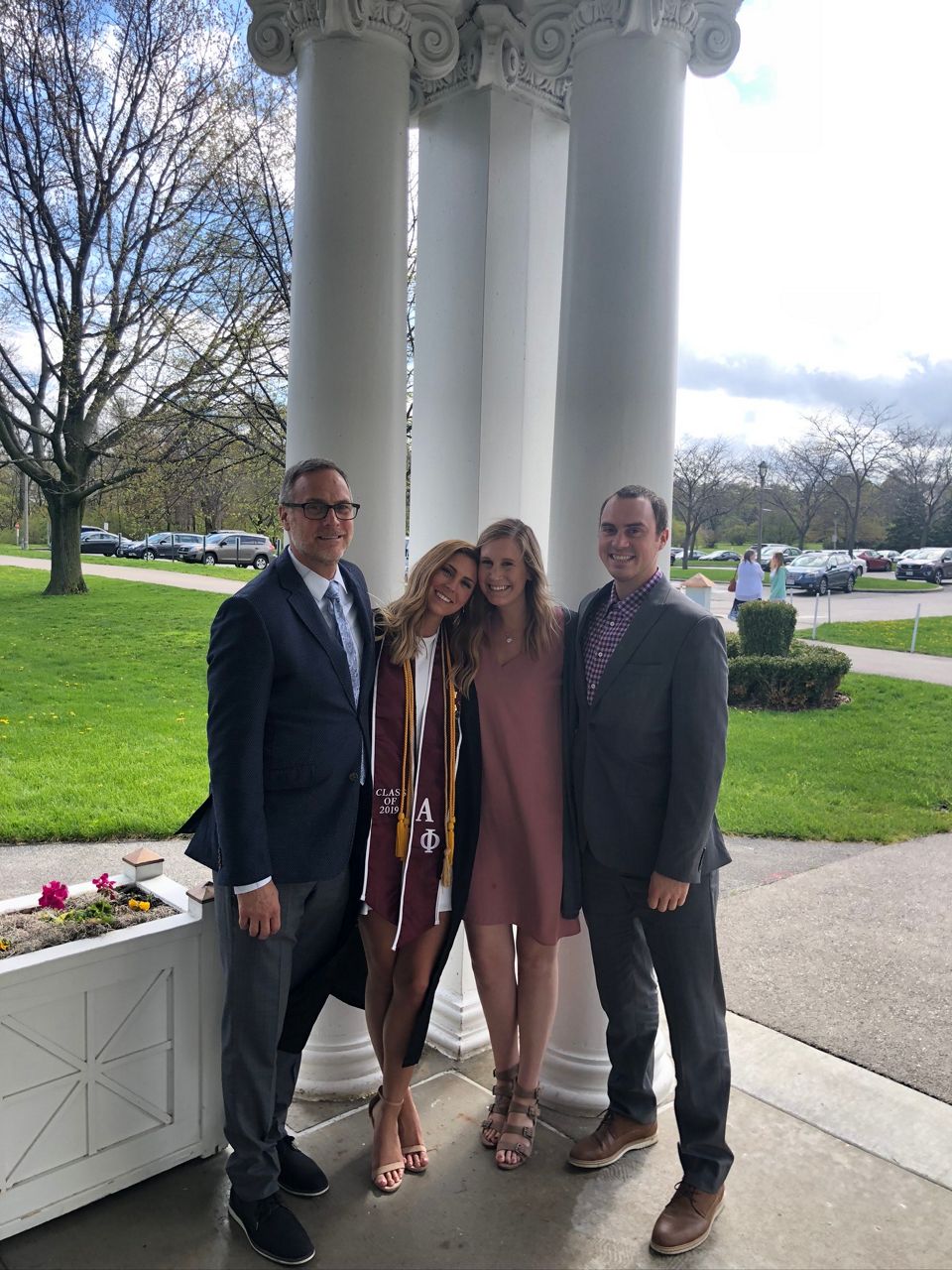
“You know what? Jenny has been so good with words and in writing, that even at my wife’s funeral she wanted to get up and address the crowd personally,’’ said Cliff. “For Jenny to get up and say the powerful words that she did, in front of 2,500 friends and family, was incredible.”
The days, weeks and months — even years — ahead were impossibly difficult. How could they not?
I could tell you about the number of times people automatically assume you have a mother, and having to awkwardly tell them she died — but even more awkwardly having to answer the question, “What happened?”
“We did family therapy at one point,’’ said Jenny. “I went to a therapist by myself. Probably tried five or six different therapists. Again, as a 13-year-old, you don’t want to be talking to strangers in a room alone for an hour about something that is so devastating and having to tear it open. You don’t really fully realize what’s happening or the mature way to handle it. You’re asking ‘Why?’ a lot of the time and you’re not getting answers. And, yes, it was difficult to kind of try and process and get through.
“But I journaled a ton, and this is something my mom and grandma both did is they journaled, all the time. That’s been one of my biggest things is getting my thoughts out of my head, out on to paper.”
It was when she was in college at Marquette — the place where her mom and dad first met and both played basketball — when all her thoughts were shared with everyone. Jenny’s raw, powerful story appeared in the student media outlet as part of a school project called “Breaking the Silence,” nearly seven years after her mom’s passing. In nearly 1,000 words, she let out all the pain she had kept inside for years.
“When I first wrote the story and had it published, I was terrified,’’ she said. “Are people going to read this and think I’m crazy? Like all these bad things have happened and that’s the stigma, right? That people with mental illness are crazy or that, again in my case, people are going to think that she is my mom and this happened and that I’m crazy and it was just … again, I was in college and I thought my peers are going to pick this up, read this, and look at me differently.
“But that wasn’t the case at all.”
By sharing with the world the worst day of her life, it enabled Jenny Fischer to find purpose for the rest of her life.
****
Jenny was scrolling through Twitter one day when she first saw the words. And she stopped scrolling.
“An Olympic runner named Desi Linden,’’ said Jenny. “It’s one of her phrases that she tosses around, and she had this tweet that said, ‘Some days it’ll feel like you’re born to do this. Other days, it’ll feel like you’re trudging through hell. No matter what, keep showing up, see what you’ve got and giving it your best shot.’
“And for me, it just like struck me to the core.”
Now, in New York City working for the NBA and grounded by COVID-19, she thought if she put that phrase on a T-shirt, found a website that would allow her to donate all the money to the American Foundation for Suicide Prevention, she would have a vehicle in which she could raise money for a worthy cause and spread a message that instantly become her mantra.
“This is an ode to Marquette, in a way,’’ she said. “What Marquette showed me is, ‘Well, OK, what are you doing for others? What are you doing to try and be the difference — like, actually their slogan — living it out in real life? And that was the part that I felt I was tugged toward, almost. What am I actually doing for other people? How can I be part of a community, or help lead, and do something that actually means something to the world, not just to myself?”
She found that something in those three simple words put on a simple, white T-shirt. She figured she’d maybe sell 50 T-shirts. She was wrong. Those three simple words, they resonated.
Sales took off, people would text her with them wearing her shirt in different states across the country. Kevin Love, of the Cleveland Cavaliers, bought a shirt and made a donation, as did JuJu Smith-Schuster of the Pittsburgh Steelers.
In just over a year’s time, she’s raised more than $50,000.
“I just think the blind support is the part that’s really touched me,’’ she said. “It’s grown to the fact where people I would have never expected to support it are buying the shirts, talking about it, and I’m not even asking them to.”
****
Jenny was a freshman at Marquette, working an internship at WTMJ radio when she received a message from her grandfather.
“My grandpa sent an e-mail to me and my dad, and a few other people, saying that he was going to be with grandma now,’’ said Jenny. “And I called the police. I didn’t know what was happening. And that was the day that he passed away.
“I remember one of the first things going through my mind was ‘How could this happen to a family twice?’ Once I sort of, again, time is such a key factor here, you take a step back and you realize it’s not about you and the other people, this person is suffering in a way where they can’t see past a certain point. And this is where the mental health portion of suicide prevention is so key because depression, anxiety and so many others things that are affecting people; they are illnesses that are affecting their brain and they can’t see past that.

Again, it’s not the person trying to harm other people. It’s trying to get out of their own pain. Not to justify what they did, but to realize this is a very real thing.“As time has gone on I feel as though I’ve been able to recognize. Again, it’s not the person trying to harm other people. It’s trying to get out of their own pain. Not to justify what they did, but to realize this is a very real thing. Suicide affects a lot of people and to be able to recognize depression is an illness and there are roots to this and again, the way that I feel, we can prevent this from happening to anyone ever again.”
****
It is morning now and Jenny does what Jenny does, every day. She journals, makes time for coffee and then squares off against the daily crossword puzzle. Later on, there will be a walk, or she’ll play basketball or do some type of physical activity to clear her head.
Her family history tells her she needs to do this.
“One, it makes me cognizant,’’ she said, “and two, it makes me more aware that I have to keep up on my own mental health.
“I have my routine that I have to follow every day. The physical and mental are completely connected. And making sure I talk to a therapist.”
Time does not heal all wounds.
“It’s been over 10 years now since I lost my mom, and been about five years since we lost my grandpa, and so, for me, making sure that I’m still going to therapy, I’m still talking to someone,’’ she said. “It doesn’t just have to be about the tragedies. It can be about how I’m feeling, how I’m coping, what’s going on in my life currently and especially for tendencies, like what I get anxious about and how I can help battle back.
“I’ve been on medication for my own mental health before, some that have helped, some that haven’t and had to change. Just been trying to stay level, keep the foundation that I have, not that I’m extremely worried because I know who I am and I know how much I care about this, but to ensure that I’m going to keep showing up for myself and for the other people around me that I love.”
Mental health is an easy subject for Jenny to discuss. Therapy is just part of her routine and something that makes perfect sense. There is no timetable.
“I feel like I don’t do therapy as like a, ‘Once I feel like this, or when I do this amount of sessions I’ll be good,’’’ she said. “I view it as having an outlet to be able to talk to someone about whatever is happening in my life, and I think the biggest part and the best part is figuring out ways to cope and figuring out ways to get better and learn on a personal level, on a mental level, from a professional who knows it best and is going to keep me moving forward in my own life in more ways than one.”
****
One wonders how a child ever gets past losing a parent this way. Hurt, anger, sadness, guilt; and so many questions to which there are no answers. That is a full plate.
People leave, but how they left always stays. I did not get a goodbye. I did not get any explanation. My grandma’s last words to me were this: ‘It can take years to forget, but it takes just a second to forgive.’ I’ll never be able to forget, but I have forgiven without being asked to.
Jenny is 24 now. Her mom has been gone for nearly half of her life.
“I always think about the way it has changed the course of me and my family’s life,’’ she said. “But she was like one of the best people. People always talk about her smile and how radiant she was.”
My mom is not her death; mental illness is not who she was.

She ponders the question of what might her mom think of all the time and energy she has poured into the “Keep Showing Up” campaign. If she’d be happy with what she’s chosen to do.
“Sometimes I feel like I’m towing that line,’’ she said. “Because if I make it too personal and too much about me, that’s not honoring the whole suicide prevention for what it is. But again, at the same time, I have that very, very deep connection to suicide prevention.
“The way that it makes me think about it is, my mom was such a doer. There’s this quote old quote in this newspaper article from her coach at Marquette that says like, ‘I don’t know if you’re able to get 100% out of you, but what I do know is Jill is giving 100% and getting 100% out of her potential.’
“And I just feel she would be glad that I’m pouring in as much as I can and I’m getting the most out of it that I can. And the fact that it’s helping other people is the purpose of it.”
Suicide is permanent and pertinent – but also preventable. Be aware. I have learned to never give up the fight. You will come out stronger and better on the other side. I used to think my mom gave up the fight, when in reality, she fought and lost.
Story idea? You can reach Mike Woods at 920-246-6321 or at: michael.t.woods1@charter.com.





